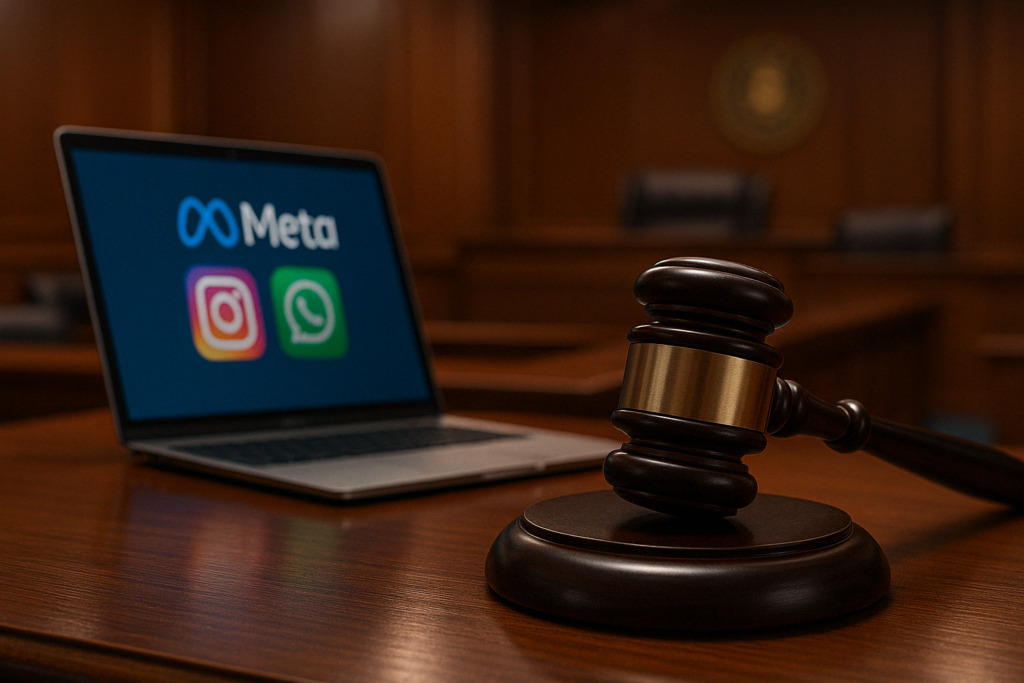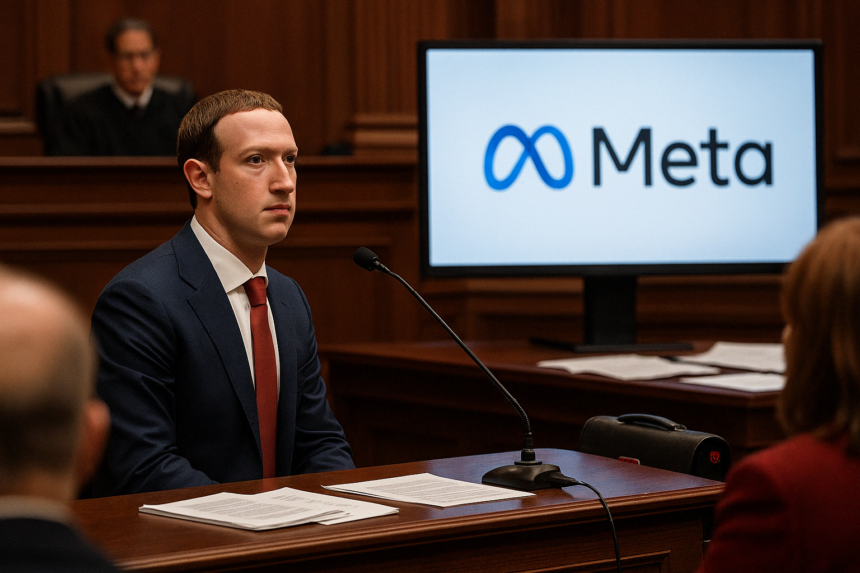The Meta antitrust trial has begun, and Mark Zuckerberg, the CEO of Meta, has taken the stand as the company defends itself against accusations made by the Federal Trade Commission (FTC). The FTC argues that Meta’s acquisitions of Instagram and WhatsApp were anti-competitive moves aimed at eliminating potential threats to its dominance in the social media market. This high-profile trial has wide-ranging consequences for digital platforms and the regulation of big tech.
What’s Happening & Why This Matters
At the heart of the FTC’s case is the assertion that Meta, formerly known as Facebook, bought Instagram and WhatsApp not to enhance the user experience but to neutralize competitors and maintain control over the social media space. These acquisitions, which took place in 2012 and 2014, are now being scrutinized under antitrust laws, with the FTC seeking to undo them. If successful, the FTC could force Meta to divest Instagram and WhatsApp, breaking up the company’s hold over these critical platforms.
During his testimony, Zuckerberg defended Meta’s acquisitions, claiming they were made to improve the services offered to users. According to Zuckerberg, the purchases helped improve Instagram and WhatsApp platforms by integrating new features and ensuring user engagement. However, the FTC contends that these acquisitions allowed Meta to eliminate competition, raising questions about whether Meta’s actions have harmed consumers by limiting choices in the marketplace.
The trial’s outcome could have implications for other tech giants that engage in acquisitions of competitors, including Google, Amazon, and Apple. These companies also face increasing scrutiny over their market dominance, and the Meta antitrust trial could set an important precedent for future antitrust enforcement in the tech industry.
In the court proceedings, Zuckerberg has been pressed on several internal communications that suggest his concerns about Instagram’s growing influence as a competitor. In private messages, Zuckerberg acknowledged that Instagram was becoming a substantial threat, particularly in areas like mobile photography and social networking. These admissions form a central part of the FTC’s argument, with the agency claiming that Meta’s strategy was not to foster healthy competition but to consolidate power by eliminating rivals before they could disrupt its dominance.

The stakes are incredibly high. Meta’s dominance in the social media and advertising sectors is being questioned, and the outcome of this case could reshape the entire industry. Instagram alone contributes to more than half of Meta’s advertising revenue in the U.S., making the platform a critical asset for the company’s financial health. If the court rules against Meta, the company may be forced to divest these assets, destabilizing its revenue model and restructuring its operations.
Impact
The Meta antitrust case is part of a movement toward regulating big tech. The trial could lead to stricter oversight of acquisitions and mergers in the digital platform sector, which has operated mainly with few restrictions in the past. This trial will not only affect Meta but also influence how tech companies approach acquisitions in the future. If the FTC wins, it could signal the beginning of more rigorous regulatory action to prevent anti-competitive behavior in the technology sector.
Moreover, the outcome of this case could impact other social media platforms. If the court determines that Meta’s actions harmed competition by acquiring rivals, regulators may scrutinize other large companies — Twitter, TikTok, and Snapchat — for similar behavior. This will bring more attention to the overall market dynamics in the social media industry, where large players dominate the field and smaller startups struggle to gain a foothold.
The case further presents the raging debate about whether big tech companies should be treated as monopolies. As Meta grows increasingly powerful in digital advertising and social networking, the question remains whether the company’s dominance stifles innovation or drives more efficient services for consumers. A ruling favoring the FTC could reshape the future of digital platforms and influence policy discussions around anti-competitive practices.
TF Summary: What’s Next
Mark Zuckerberg’s testimony will remain a focal point as the Meta antitrust trial progresses. His defense of Meta’s acquisitions will determine the case’s outcome. If Meta is forced to divest Instagram and WhatsApp, it could set a new precedent for tech companies and change the future of the social media industry. The trial is not just about Meta but about the future of how big tech operates in the global marketplace. The FTC’s efforts to curb anti-competitive practices may lead to stronger regulation across the industry, particularly for companies that control vast portions of the digital landscape.
The Meta antitrust trial raises greater accountability for big tech companies and promotes the need for effective regulation in the rapidly growing digital economy. As the trial continues, the world will watch closely to see if the FTC successfully challenges Meta’s market power and what that will mean for the tech sector’s future.
— Text-to-Speech (TTS) provided by gspeech


